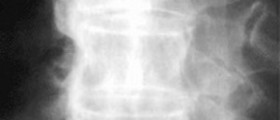
Introduction
Disphagia is a symptom present in a variety of diseases that features with swallowing difficulties. The problem may include all the food, but in some cases people may have difficulties in swallowing solid food while others complain about problems connected with swallowing of liquids. If these difficulties are followed with extra pain the patient feels even worse. Not only must he/ she overcome the problem with swallowing, but they also have to suffer certain intensity of pain. The cause of this medical condition requires urgent diagnosis and as soon as the cause has been established the appropriate therapy must be introduced.
The pain that accompanies swallowing may be present in the mouth, may originate from certain changes in esophagus and so on. The bottom line is that pain can be present all the way from the mouth to the breast bone. So all the people who are having difficulties with swallowing that last for longer period of time, especially if there is pain present, should visit their doctors as soon as possible. They should not neglect the symptoms. This way certain potentially deadly medical conditions may be found on time and treated properly.
Causes of Dysphagia
Dysphagia may be a symptom of numerous medical conditions and can be also accompanied with pain. Gastroesophageal reflux disease is one of the most common causes of painful dysphagia.
It can additionally occur in normal process of aging. People who have had a stroke also have difficulties with swallowing. Medical conditions that affect esophagus such as achalasia, tumors etc. are always followed with this symptom.
Extremely enlarged thyroid gland makes pressure onto the esophagus and cause dysphagia. Madiastinal tuberculosis which is a form of tuberculosis and is presented with enlarged lymph nodes in mediastinum can lead to esophageal compression resulting in difficulties with swallowing. Even in certain infections caused by different infective agents painful dysphagia may occur.
Additionally, medications can also lead to problems with swallowing and pain during this act.
Patients who have undergone the surgery in the neck area and those who have received radiotherapy onto the mentioned region tend to develop fibrosis of the soft tissue. This is another cause of dysphagia.
And even diseases of the organs that are not located in the neck and chest cavity can be a cause of dysphagia, both painful and dysphagia that is not accompanied by pain. These include Parkinson's disease, cerebral palsy, multiple sclerosis, Huntington's disease, and so on.
Treatment of Painful Dysphagia
The treatment basically depends on the cause. The primary goal is to set the proper diagnosis and to do it as quickly as possible. What follows is adequate treatment modality and certain changes in dietary regimes. Medications are prescribed according to the cause. Surgery is performed in selected cases. And in neglected cases and those who cannot swallow food any more feeding tubes can be a suitable solution.

















Your thoughts on this
Loading...